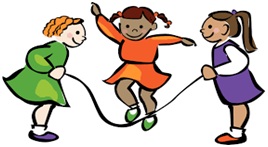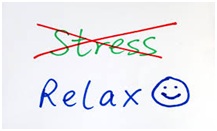Schools across the nation are closed to stop the spread of 2019 coronavirus disease (COVID-19), millions of children are obliged to remain at home. During this time, it is helpful for parents to consider their child’s needs for structure, education, exercise, social contact, appropriate leisure time, and calm, rational explanations about the situation, say experts & offer suggestions for parents to help make the most of their child’s time off from school, while keeping in mind child development and children’s reactions to stressful and changing situations.

A Need for Structure
Children may consider this time to be similar to long school breaks or summer vacation, but it is not exactly the same. This is not a usual vacation, but is sudden and unplanned, and the time away from school is still uncertain. This uncertainty can be difficult for children to understand. In general, people don’t do well when they are unsure about the future.
Set a schedule for the weekdays and weekends. Children and teens do their best if there are plans for each day, especially the weekdays when they would have been in school.
Set Regular Bedtimes and Wake-Ups
After perhaps the first few days, have your child or teen follow the usual school day–weekend day sleep schedule. It is best to have a regular wake-up time and bedtime that is the same as the schedule you set when they were attending school, since it can be hard to get back on track, especially if kids get into a late-to-bed, late-to-rise schedule.

Establish a School Day Educational Schedule
Expert warn that a free-for-all, loose schedule is nice for other normal times or vacations, but can lead to boredom and a difficult time getting back into the educational routine if it lasts. You as parent know how your children’s schools plan to keep students engaged and active, and follow the suggested schedule.
Parents can consider starting with a morning meeting and schedule list, since this is what most teachers do to start of the day. Have a list of the subjects and activities for the day, and create 30- to 45-minute blocks of time to work on the subjects that your child takes.
For elementary school children, a sample morning could include math, followed by a walking break or playing catch for about 10 minutes; EVS/social studies—including current events—using online resources; a set of jumping jacks and a race around the house for another break; and then science so on & so forth.
Take a break for lunch and have your child help make it, while building in lessons using the internet or books exploring the following questions:
Where does the food come from? For example, how is bread made from farm to bakery?
What transportation is required to get the food to the store and home?
What workers are involved in the supply chain?
What government agencies are responsible to assure food safety?
What science is used to make advances in food quality?
Math and science can be also incorporated into cooking and meal prep. Questions to pose to your child may include the following:
What happens to vegetables when they are heated?
Why do we cook meat? Does cooking help reduce germs?
How much more is 360 degrees than 120 degrees?
At what temperature does water boil?
After lunch, recess can be in session, followed by a round of language arts, reading, and writing practice. To conclude the school day, consider assigning brief homework, such as reviewing one of the activities from the day.
Parents could also set up safe playdates, or consider some joint lessons with classmates of your locality that are healthy. Determining how many children can get together should be an informed conversation with the other parents, your doctor.
Taking Education Online
While schools are shuttered, many schools are moving their lessons online by providing virtual instruction or assignments. Make sure your child keeps up with the assignments and can engage in any virtual instruction.
If your child’s school is not providing these options, turn to sources from reputable home-school organizations and websites, as many of these organizations provide lessons and materials for every grade level.
Educational publishing houses, apps etc. also have curated a free digital learning hub designed to support virtual learning plans for children. Library associations can also provide guidance on books—both fiction and nonfiction—for different age levels.

Exercise and Social Contact
Being active each day, everyone will be calmer and will sleep better. Healthy involvement like taking walks and playing games with your kids, such as hide-and-seek, scrabble, indoor games etc.bicycle rides, also a great idea. Walks can also be used to teach about nature, plants, animals, and birds.
Even when isolated, parents can help kids stay connected to others with modern technology, within reasonable limits. Encourage appropriate and reasonable use of phones, tablets, and computers for making the connections. Parents should follow wise guidance on use, including broad monitoring of content and the tone of communications that have been or are occurring.While out of school, children may be seen as potential targets for cyber predators, so encourage your children to be open about the messages that they receive and persons that are making contact attempts.
Leisure Time Considerations
Let your kids have a varied leisure time diet of television, books, and other media. Some of the content can be serious and uplifting, and a smaller portion of it can be silly.
Make certain that a good portion of leisure time activity is active, both mentally and physically.Teachers and school provide kids with more than six hours of mental exercise. Try to match that.Passive and sedentary entertainment such as prolonged watching of television, movies can also be a problem. It can lead to a reduction in physical health and fitness and contribute to unwanted weight gain. Remember, at school, children are at least walking around the building.

Reducing Anxiety in the Face of Real-Life Concerns
It’s best for parents to provide rational explanations about COVID-19 and help maintain an appropriate calm, experts say. To help manage anxiety in children of all ages, make certain to provide accurate information from reliable sources.
Recognize that even young kids overhear conversations, gossip, rumors and news reports. Children say that they find local news that they do not understand to be more frightening than scary fairy tales or even horror movies. Because of this, it’s important for parents to ask their kids if they have questions or concerns about the situation and to work hard to clarify their understandings.
Do your best to protect your child and family members from COVID-19 and let your child know how they can protect themself and others. Guides and rules for social distancing and hygiene and consulting with healthcare professionals should be followed. Even young children can calmly understand illnesses. Let them know at an appropriate developmental level how COVID-19 can be passed onto others that most people do not become very sick, and that health professionals are working hard to take care of the very ill in isolated settings.
If you find yourself excessively worried, tense, or sad, consult with health, mental health, and other sources of counseling, such as clergy. Check for these reactions in your children too. Stressful times contribute to mental health problems, especially if they were present before the stress started, child counselors say. Make sure to take care of you and your children’s mental health during this health concern.
Finally, watch out for problematic reactions to stress in you and in your child. Times of extended stress are associated with increases in the following:
Sibling fights, since children may be cooped up with one another for long stretches. Be ready to help discuss conflicts and set guidelines for how to resolve problems.
Fights and tension between and among caretakers. Parents will probably have more arguments, and conflicts between all of the caretakers are likely, including domestic helpers, grandparents, and other family members. Tight quarters and limited time away from each other can contribute to arguments and even aggression.
Domestic violence and child abuse. Tempers and poor decision-making flare up during times of stress. If you are concerned about your actions or the actions of others, make sure to rely upon regional resources and hotlines. Find ways to decompress and take breaks. This may mean that you will have to work as a team to relieve one another.
Demoralization and depression. The situation can seem bleak, but try to keep information in perspective. How you do so will depend on your faith and beliefs. Turn to these sources for support. Also remember that, although sad, most people will survive as they have in past widespread health problems.
Lessons to teach your child before lockdown ends
Perhaps, COVID-19 has taught our children a range of compelling life-changing lessons. By now, most of them understood how the world has responded to a ‘pandemic’ and its impact on aspects that directly affect their lives. As states across the country ease lockdown rules amid rising cases of coronavirus disease, here are six lessons you can teach your child before their school reopens.
- Stay positive and avoid negative conversations: The things children hear and see during childhood have a direct influence on their perception as they become adults. News about the pandemic and death is likely to have a negative impact on them as they are only just yet building an understanding about the external situation. Instead, parents must avoid negative conversations in front of their child, whether they are personal or work related.
- Limit screen time: It is a tedious enough task to keep children away from gadgets on a regular day and all the more when they are stuck at home with no school or outdoor activities. To avoid straining their eyes, it is important they limit the time spent on any electronic gadget. Maximum 1 hour of daily screen time for all devices, including the TV, computer, gaming consoles etc, will give them enough time to do other activities and tasks.
- Exercise with your child at home: If you are a fit parent who regularly went to the gym before the lockdown, you might want to continue your fitness routine at home and, perhaps, workout with your child! Exercising with your child every day for one hour at home or outdoors, when and if allowed, will keep you both active
- Help your child study for 2-3 hours every day: With an extended lockdown and no certainty when schools will reopen, children need to keep up with their habit of studying regularly. Remind them that studying should not be affected and this time is not a vacation period for them.
- Indulge in joint activities: Quarantine has created extra burden on parents to constantly keep their child active. Indulge in some fun and interesting joint activities that you and your child enjoy together - such as baking or cooking, storytelling and reading, boardgames with the family, some art and craft or painting, etc.
- Maintain good hygiene: As them to stick to hygiene measures, which can help protect your family’s health and everyone else’s. These include – handwashing with soap and water for at least 20 seconds, not touching face, covering mouth and nose when coughing or sneezing, etc.
I hope, the above suggested tips may help your child stay positive and also ease their going back to school routine once things get back to normal.

-By Urban DSouza,MA, B.Ed.
